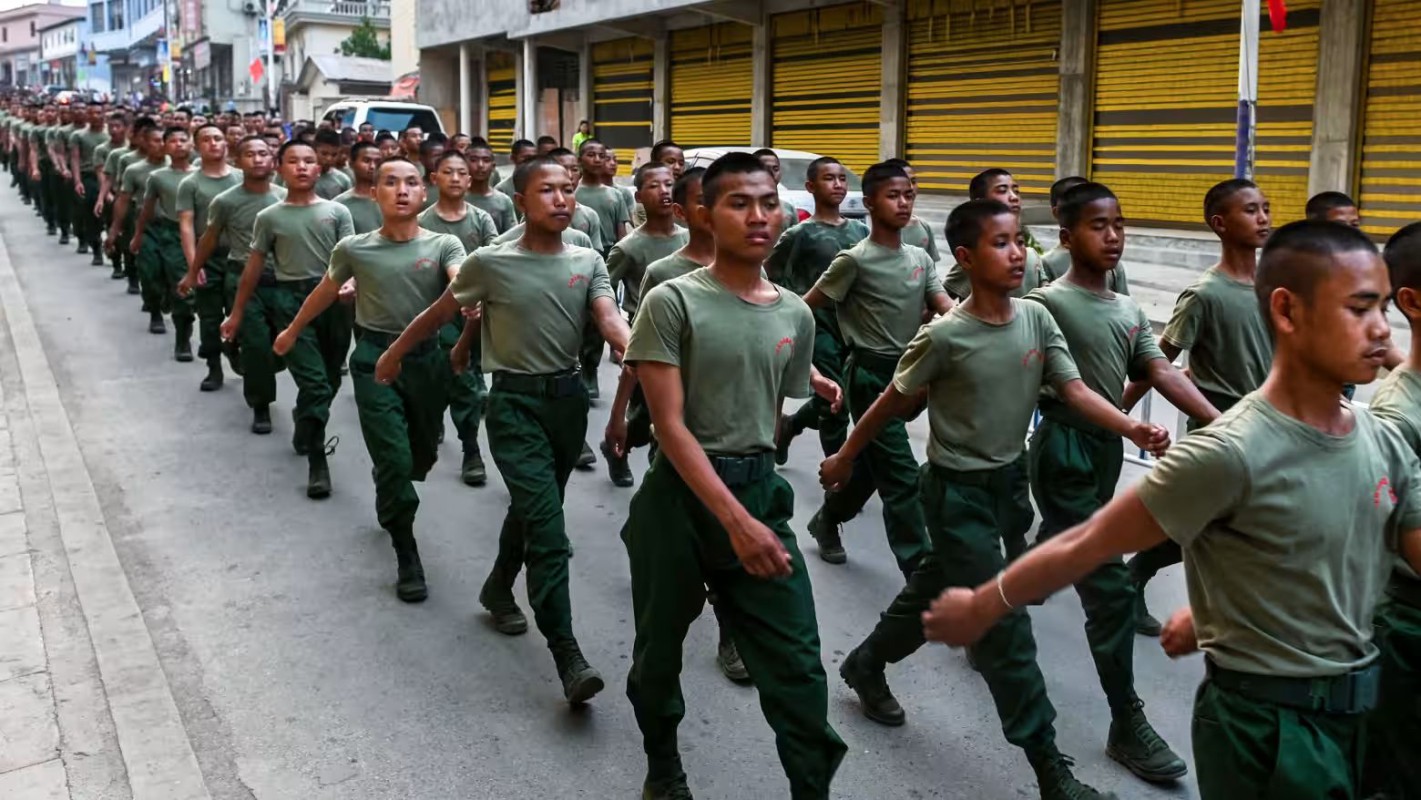Outlaw and armed: UWSA's actions threaten Southeast Asia

643

Phyo Lin Aung (NP News) - Jun 10
The United Wa State Army (UWSA), an armed ethnic organization operating in the northern and southern Shan State areas, has once again drawn intense regional scrutiny over its escalating involvement in cross-border violence, narcotics trafficking, and forced recruitment. Despite its size and influence, the UWSA remains an armed group without recognized sovereignty. As such, responsibility for its containment lies squarely with the Government of Myanmar — a duty that neighbouring countries now urge Naypyidaw to fulfill.
Armed group sparks regional tensions
In a significant diplomatic move, the Lao government formally requested Thailand’s help in dealing with repeated UWSA incursions and attacks on Lao military installations along the Golden Triangle border. Lao authorities have also cited the group’s deep involvement in large-scale drug production and smuggling operations, which are undermining regional stability and public health.
Responding to these concerns, senior officials from Thailand and Laos convened a high-level emergency meeting in the final week of May. The outcome was a series of unprecedented security agreements aimed at disrupting UWSA-linked narcotics activity. These agreements include: joint military operations and patrols at border checkpoints, real-time intelligence sharing and joint analysis, installation of GPS tracking systems on Mekong River vessels, cross-border investigations into Lao businessmen operating in Thailand and Thai businessmen in Laos.
The coordination reflects a new urgency to contain the spread of drugs, violence, and illicit commerce linked to the UWSA.
The UWSA’s drug empire is also under siege. Between December 2024 and May 2025, Thai authorities seized illicit drugs linked to the Wa group valued at over 15 billion baht (USD 400 million). These losses have reportedly caused substantial financial strain within the UWSA, prompting the group to reroute trafficking operations through Laos using more sophisticated smuggling techniques.
Despite public denial of involvement, multiple international and Thai reports continue to name the UWSA as a primary supplier of methamphetamine and other synthetic drugs in Southeast Asia.
Growth fueled by coerced conscription
Despite growing international pressure, the UWSA continues to expand its strength. Reports from Shan State describe the group forcibly conscripting new soldiers — demanding at least one recruit from every ten households in local Shan villages.
Village elders in Tangyang Township report that most local youth have already joined the Shan State Army (SSA), leaving few eligible recruits. Nevertheless, UWSA officials have threatened to begin recruiting male and female children if quotas are not met. A May 22 meeting in Wein Mai Village reportedly included direct threats against community leaders who could not fulfill recruitment demands.
This aggressive recruitment drive contradicts the group’s earlier claims of entering villages "for the protection of civilians" without taxing or conscripting them. Now, communities are facing daily pressure and threats, turning promised security into a source of fear.
A parade of defiance
In the last week of May, the UWSA held a full military parade in its so-called "Southern 171 Military Region" on the Thai-Myanmar border, featuring more than 1,000 soldiers. Broadcast on WSTV, the parade showcased the group’s continued defiance in the face of mounting external criticism. High-ranking UWSA officials, including Central Standing Committee member U Kyauk Kaw An, were in attendance.
The show of force coincides with renewed accusations from Thailand over environmental degradation caused by gold mining operations conducted by the UWSA near the border, which has polluted rivers and disrupted livelihoods in Thai territory.
International concern and the call for action
Former Thai Prime Minister Thaksin Shinawatra has added his voice to the chorus calling for decisive action. In a keynote address on May 27 at Thailand’s Office of the Narcotics Control Board, he stated: “If Myanmar cannot act, Thailand may need to take direct measures. If [the Wa] continue to produce drugs, they are enemies of Thailand. We must not show mercy to our enemies.”
Thaksin identified the Wa group as a central node in the Golden Triangle's narcotics network and called for a multilateral regional strategy to dismantle the group’s operations.
While his remarks drew criticism due to his past record on drug policy, they reflect a growing frustration in Bangkok with Myanmar's inability — or unwillingness — to contain the UWSA.
UWSA is not a sovereign entity
It is crucial to reiterate: the UWSA is an armed insurgent group, not a sovereign authority. Its operations within Myanmar's territory — including recruitment, taxation, border activity, and drug trafficking — are violations of national and international law.
If the situation continues unchecked, regional governments may be compelled to escalate enforcement actions, possibly extending beyond diplomatic channels.
A Call to Naypyidaw
Myanmar must act now to:
• Disarm and demobilize the UWSA
• Investigate and shut down drug networks operating in UWSA-controlled areas
• Ensure the protection of civilians in Shan State from forced recruitment
• Cooperate with regional partners to stabilize the Golden Triangle
The cost of inaction is high: worsening diplomatic ties, growing instability, and a drug crisis that continues to destroy communities across Southeast Asia. –